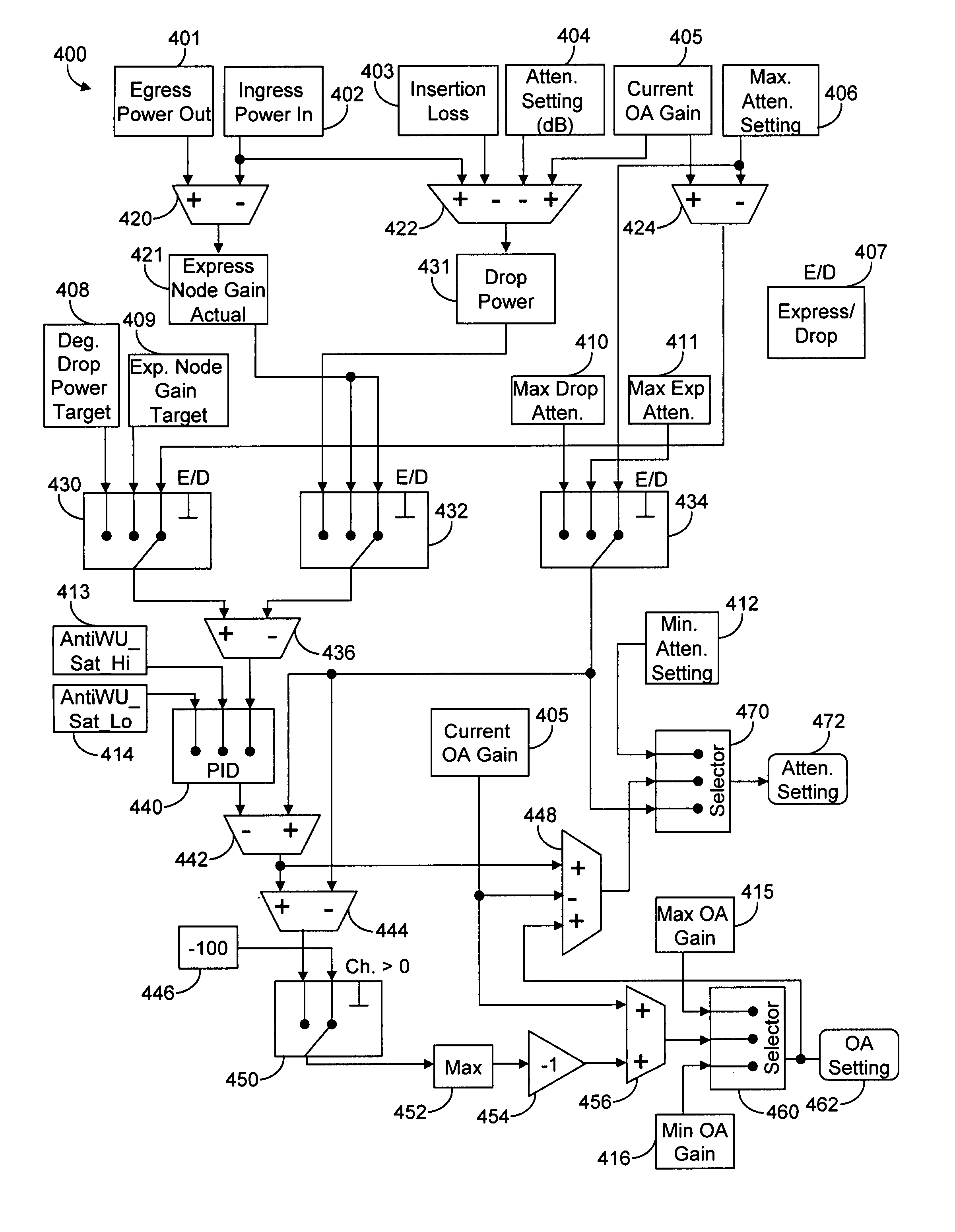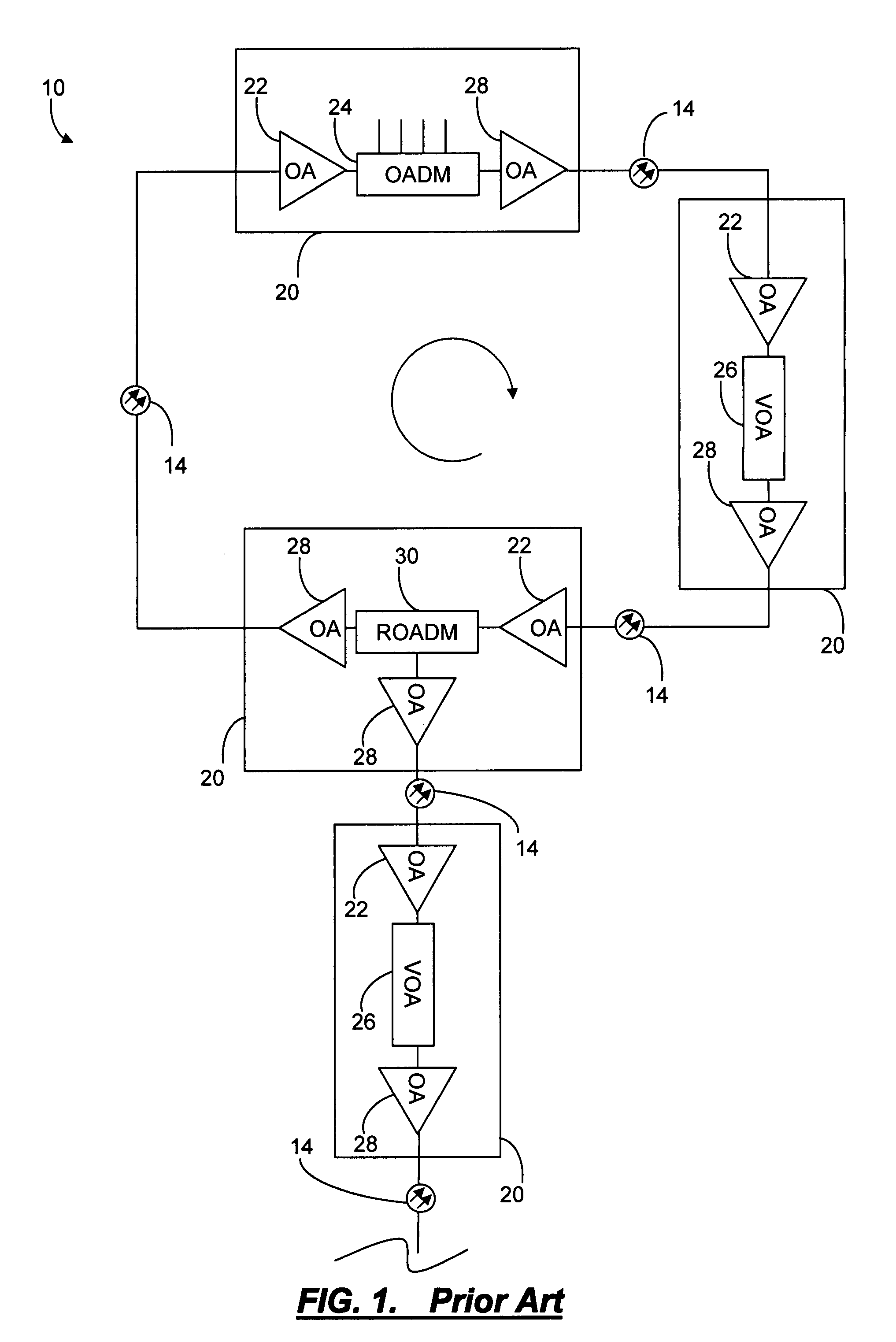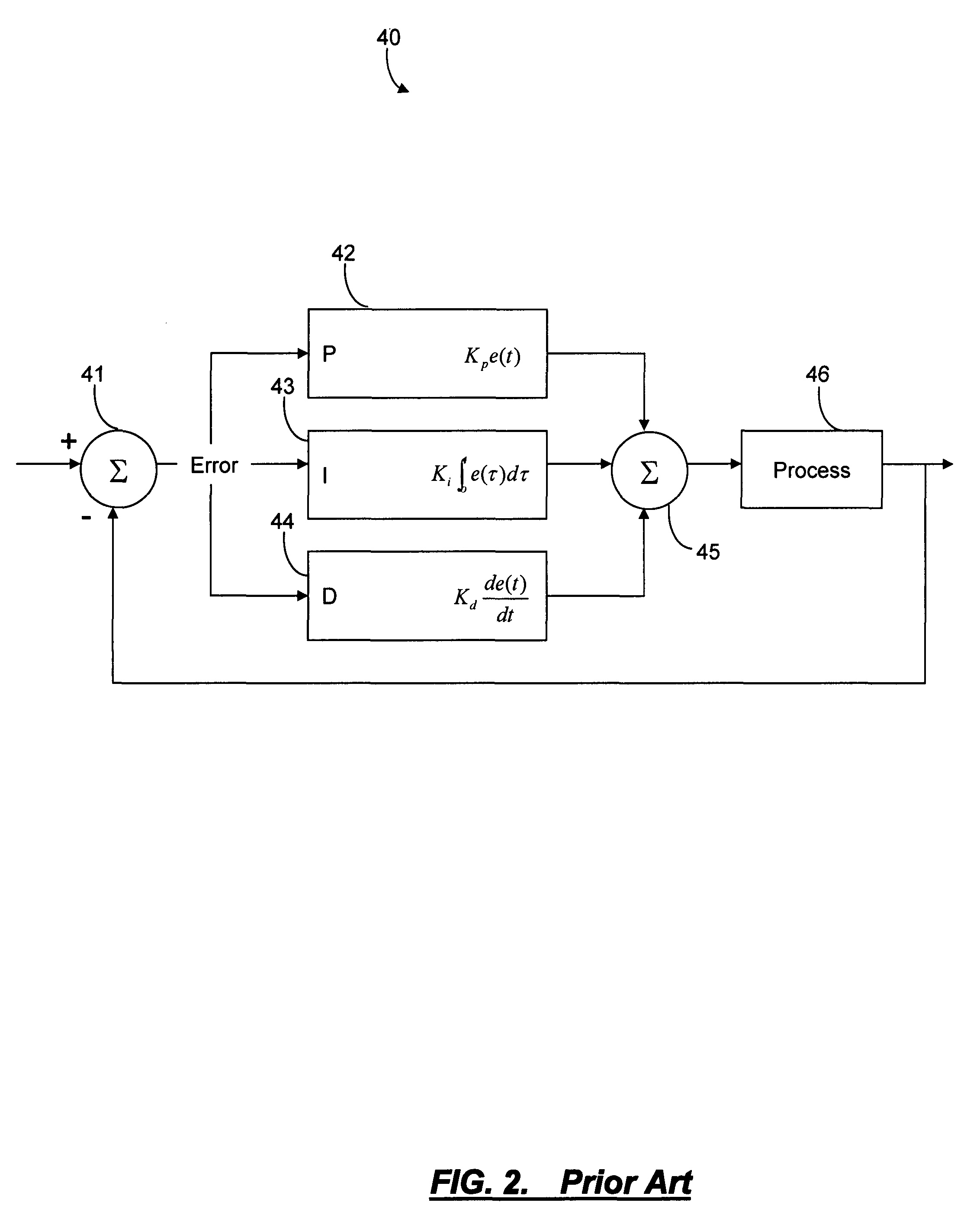Systems and methods for a multiple-input, multiple-output controller in a reconfigurable optical network
a reconfigurable optical network and controller technology, applied in the field of optical networks, can solve the problems of inability to maximize signal-to-noise ratio, change in optical gain of channels, and inability to use pid control, etc., to achieve rapid controller, increase amplifier gain, and optimize the effect of concatenated amplifier gain and attenuation settings
- Summary
- Abstract
- Description
- Claims
- Application Information
AI Technical Summary
Benefits of technology
Problems solved by technology
Method used
Image
Examples
Embodiment Construction
[0037]In various exemplary embodiments, the present invention provides systems and methods to convert a reconfigurable optical node multiple-input multiple-output (MIMO) system to a single-input single-output (SISO) system suitable for a proportional-integral-differential (PID) control process. Advantageously, the present invention allows PID control to apply to a MIMO optical node by modeling the node as two SISO systems. The present invention optimizes the division of gain and loss between components in the reconfigurable optical node. This provides means to control the net gain and loss of a series of components when the component chain being controlled includes those components that have a single action affecting multiple channels and components that affect only one channel. The present invention utilizes control of a single quantity of amplifier gain minus attenuation for each channel, and the coupling together of all channels in the amplifier which makes the channels inter-dep...
PUM
 Login to View More
Login to View More Abstract
Description
Claims
Application Information
 Login to View More
Login to View More - R&D
- Intellectual Property
- Life Sciences
- Materials
- Tech Scout
- Unparalleled Data Quality
- Higher Quality Content
- 60% Fewer Hallucinations
Browse by: Latest US Patents, China's latest patents, Technical Efficacy Thesaurus, Application Domain, Technology Topic, Popular Technical Reports.
© 2025 PatSnap. All rights reserved.Legal|Privacy policy|Modern Slavery Act Transparency Statement|Sitemap|About US| Contact US: help@patsnap.com



